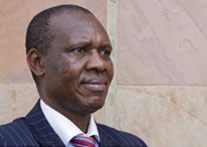|
Africa Economy - Development Doing business in Africa "becoming easier"
"The attractiveness of Africa as an investment destination has been positively impacted by a number of developments in the regulatory environment affecting potential new entrants to markets, infrastructure development and the presence of professional services firms which have experience of the complexities the continent poses," according to South African analyst Caitlin Hawken at Orange Ink.
"Business would like to see a greater mobility of highly skilled labour, and hence, these skills could being transferred across economies," Ms Krugel told the delegates. "The retail sector has also been identified as a growth key area, given the size of the African population. However, consumers need incomes to bring about the growth of the economy through the retail sector." "From a regional perspective, East Africa represents a powerful market comprising five countries and 130 million consumers", said Josphat Mwaura from KPMG East Africa. Mr Mwaura, who joined a live broadcast of the event from Nairobi, Kenya, added that that region also "has historical linkages with India, China and Pakistan, which serve as crucial export destinations." On the issue of political volatility, Mr Mwaura maintained that "political risk is a way of life in business." However, he urged the business community "to engage more proactively in identifying the issues before they blow up into a crisis." Mr Maweni added that from a marketing perspective, there is a need to conduct a proper analysis of the four "p's" before undertaking business in Africa: "One of them is political stability in any territory one enters. If one is going to get involved in Africa, one must be patient, because Africa is not for the faint-hearted. One must also persevere. Lastly, there are lots of profits to be made in this continent." On strengthening private-public partnerships, Ms Krugel pointed out that this had worked well in some sectors such as telecom infrastructure and that there had been mixed results in the energy sector. However, in other infrastructure areas such as water, sanitation and irrigation there seems to be "challenges" which "needed to be addressed." Where private-public partnerships have worked well, it could be attributed to the private sector understanding the needs of the public sector, communicating with the public sector and not imposing business models applied in other countries, on Africa," Ms Krugel added. "We believe that Africa is a continent whose 'time has come' and we would like to encourage business to participate in and contribute to what is turning out to be an extraordinary continent, potentially offering extraordinary returns on investment," concluded Mr Kgosana. By staff writer © afrol News - Create an e-mail alert for Africa news - Create an e-mail alert for Economy - Development news
On the Afrol News front page now
|
front page
| news
| countries
| archive
| currencies
| news alerts login
| about afrol News
| contact
| advertise
| español
©
afrol News.
Reproducing or buying afrol News' articles.
You can contact us at mail@afrol.com









